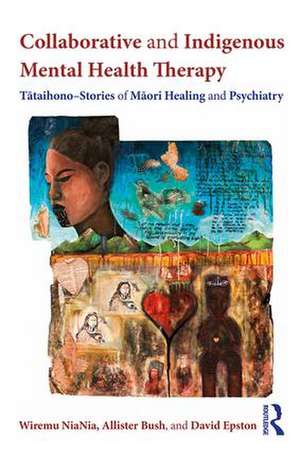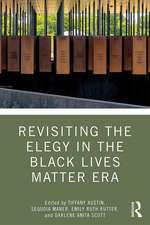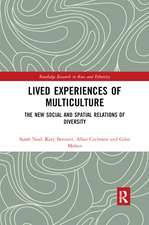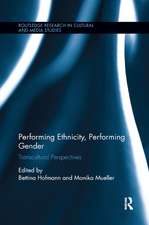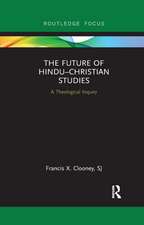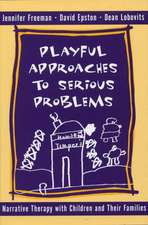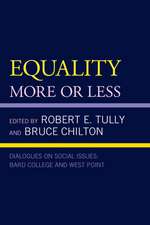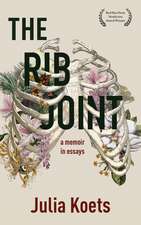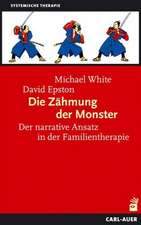Collaborative and Indigenous Mental Health Therapy: Tātaihono – Stories of Māori Healing and Psychiatry: Writing Lives: Ethnographic Narratives
Autor Wiremu NiaNia, Allister Bush, David Epstonen Limba Engleză Paperback – 12 dec 2016
| Toate formatele și edițiile | Preț | Express |
|---|---|---|
| Paperback (1) | 419.97 lei 43-57 zile | |
| Taylor & Francis – 12 dec 2016 | 419.97 lei 43-57 zile | |
| Hardback (1) | 1157.04 lei 43-57 zile | |
| Taylor & Francis – 16 dec 2016 | 1157.04 lei 43-57 zile |
Din seria Writing Lives: Ethnographic Narratives
-
 Preț: 301.21 lei
Preț: 301.21 lei - 5%
 Preț: 323.82 lei
Preț: 323.82 lei -
 Preț: 353.67 lei
Preț: 353.67 lei - 5%
 Preț: 294.49 lei
Preț: 294.49 lei -
 Preț: 309.46 lei
Preț: 309.46 lei -
 Preț: 301.89 lei
Preț: 301.89 lei -
 Preț: 346.96 lei
Preț: 346.96 lei -
 Preț: 293.43 lei
Preț: 293.43 lei -
 Preț: 345.01 lei
Preț: 345.01 lei -
 Preț: 294.24 lei
Preț: 294.24 lei -
 Preț: 297.54 lei
Preț: 297.54 lei -
 Preț: 295.30 lei
Preț: 295.30 lei -
 Preț: 311.43 lei
Preț: 311.43 lei - 5%
 Preț: 309.81 lei
Preț: 309.81 lei - 5%
 Preț: 343.04 lei
Preț: 343.04 lei -
 Preț: 360.10 lei
Preț: 360.10 lei -
 Preț: 311.09 lei
Preț: 311.09 lei -
 Preț: 383.63 lei
Preț: 383.63 lei - 5%
 Preț: 294.26 lei
Preț: 294.26 lei -
 Preț: 386.61 lei
Preț: 386.61 lei -
 Preț: 309.27 lei
Preț: 309.27 lei - 20%
 Preț: 248.15 lei
Preț: 248.15 lei -
 Preț: 287.87 lei
Preț: 287.87 lei -
 Preț: 382.65 lei
Preț: 382.65 lei -
 Preț: 382.90 lei
Preț: 382.90 lei -
 Preț: 358.19 lei
Preț: 358.19 lei - 26%
 Preț: 708.55 lei
Preț: 708.55 lei - 17%
 Preț: 242.69 lei
Preț: 242.69 lei - 26%
 Preț: 763.61 lei
Preț: 763.61 lei -
 Preț: 360.31 lei
Preț: 360.31 lei
Preț: 419.97 lei
Preț vechi: 442.07 lei
-5% Nou
Puncte Express: 630
Preț estimativ în valută:
80.39€ • 87.35$ • 67.57£
80.39€ • 87.35$ • 67.57£
Carte tipărită la comandă
Livrare economică 21 aprilie-05 mai
Preluare comenzi: 021 569.72.76
Specificații
ISBN-13: 9781138230309
ISBN-10: 1138230308
Pagini: 192
Ilustrații: 1 Halftones, black and white; 1 Illustrations, black and white
Dimensiuni: 152 x 229 x 15 mm
Greutate: 0.28 kg
Ediția:1
Editura: Taylor & Francis
Colecția Routledge
Seria Writing Lives: Ethnographic Narratives
Locul publicării:Oxford, United Kingdom
ISBN-10: 1138230308
Pagini: 192
Ilustrații: 1 Halftones, black and white; 1 Illustrations, black and white
Dimensiuni: 152 x 229 x 15 mm
Greutate: 0.28 kg
Ediția:1
Editura: Taylor & Francis
Colecția Routledge
Seria Writing Lives: Ethnographic Narratives
Locul publicării:Oxford, United Kingdom
Public țintă
Postgraduate and ProfessionalCuprins
Contents
Foreword
List of Abbreviations
Chapter One: Introduction
Chapter Two: Context
Chapter Three: Hey Moko, Slow Down!
Chapter Four: George and the Thing
Chapter Five: The Lesson
Chapter Six: ‘I Will Not Leave My Baby Behind’
Chapter Seven: Into the World of Light
Chapter Eight: Tātaihono
Glossary
Acknowledgements
Index
Foreword
List of Abbreviations
Chapter One: Introduction
Chapter Two: Context
Chapter Three: Hey Moko, Slow Down!
Chapter Four: George and the Thing
Chapter Five: The Lesson
Chapter Six: ‘I Will Not Leave My Baby Behind’
Chapter Seven: Into the World of Light
Chapter Eight: Tātaihono
Glossary
Acknowledgements
Index
Notă biografică
Wiremu NiaNia was apprenticed as a child to a spiritual healer of the NiaNia whānau. In 2005 he became the cultural therapist at Te Whare Mārie, the Māori mental health service at Capital Coast District Health Board. He is now an independent healer, writer and consultant.
Allister Bush is a child and adolescent psychiatrist at Te Whare Mārie, the Māori mental health service in Porirua, and at Health Pasifika (integrated Pacific mental health service, Capital Coast District Health Board).
David Epston is an honorary clinical lecturer at University of Melbourne and an affiliate faculty member at North Dakota State University.
Allister Bush is a child and adolescent psychiatrist at Te Whare Mārie, the Māori mental health service in Porirua, and at Health Pasifika (integrated Pacific mental health service, Capital Coast District Health Board).
David Epston is an honorary clinical lecturer at University of Melbourne and an affiliate faculty member at North Dakota State University.
Recenzii
A significant contribution to the growing literature on indigenous views of health and illness. Asserts and secures Māori identity amid global pressures for cultural uniformity and homogenization. An informative journey into the Māori way-of-knowing and way-of-being in the world. The glossary of Maori language terms is a special treat.
Anthony J. Marsella, Ph.D., Emeritus Professor of Psychology, University of Hawaii.
Ahakoa he pukapuka i roto i te Reo Pākehā, ka puta mai he whakaaro Māori tuturu. Nā rāua i rangatira motuhake ai tā tātou akoranga hei whakamahiti korou tō tātou mahi tahi, kia piki ake ai te oranga o ngā whānau. Despite being in English, a truly Māori approach is visible. The two authors present a unique opportunity to elevate our learning in order to strengthen working together so that whānau health is advanced.
Dr Hinemoa Elder, Professor in Indigenous Mental Health Research and Director of Te Whare Mātai Aronui, Te Whare Wānanga o Awanuiārangi
Tātaihono is a unique book on what should be a culturally-adapted and person-centered care in the 21st century. It outlines the experiences of two exceptional individuals, one a Māori healer and the other a European-New Zealander psychiatrist, whom carefully manage together challenging clinical cases among the Māori. A wonderful account on Indigenous healers-psychiatrists’ collaboration and their contributions to global mental health.
Mario Incayawar, M.D, MSc., PhD., Runajambi Institute, Inca Nation, South America.
The book is wonderful and makes a great contribution to psychiatry both in Australia and New Zealand. It furthers our understanding of the human experience through a cultural lens and clearly demonstrates the importance of good, respectful relationships within the clinical team and with the families seeking assistance. It also highlights the importance and significance of Indigenous knowledge and the benefit from using both a western and Indigenous perspective in achieving good outcomes. I really like the way the book has been written by honouring the voices of all who participated in the case studies and acknowledging their shared wisdom and experiences.
Professor Helen Milroy, Director, Centre for Aboriginal Medical and Dental Health
I found this to be an excellent exposition of quality clinical practice in mental health in a bicultural framework. I would strongly commend it to trainee psychiatrists as a core text in their training, and would recommend it to all those working in mental health in New Zealand.
Professor Pete Ellis, Professor of Psychiatry, University of Otago, Wellington
This work will be of wide interest to multiple practitioner and lay audiences both nationally and internationally, for people with difficulties of this kind and their families, for indigenous and non-indigenous mental health workers in different contexts, for clinical teachers, trainees and researchers, and anyone concerned with the mental health and wellbeing of those in their communities.
Professor Tim McCreanor, Social Scientist, Massey University, Auckland
The UNITEC Bachelor of Social Practice programme with its 300 students and the Postgraduate Diploma in Counselling with its 50 students, are both crying out for a book of this sort.Kay Ingamells, Lecturer, Department of Social Practice, UNITEC Institute of Technology, Auckland
The authors have been able to use recordings of the actual clinical sessions to ensure accuracy of the content. They have also been able to follow up with the patients and have obtained updates on clinical outcomes and reflections on their experiences of the treatment they received. This all combines to provide a rich picture of how a truly collaborative interface between scientific and indigenous Maori knowledge looks. This definitely has value for clinicians of any ethnicity who will be working with Maori, at any level of experience. I will certainly be reading this book again.
Clive Banks, Consultant Clinical Psychologist: Ora Toa Mauriora
"I experienced this book as devine. It is beautifully written, provides detailed examples of how to assess for possible spiritual problems (which can be primary or comorbid issues), and teaches ua all how we might best partner healers steened in an indigenous, spiritual understanding of what it means to suffer and find healing."
Dr Granda, University of Hawai'i, Honolulu
A significant contribution to the growing literature on indigenous views of health and illness. Asserts and secures Māori identity amid global pressures for cultural uniformity and homogenization. An informative journey into the Māori way-of-knowing and way-of-being in the world. The glossary of Maori language terms is a special treat.
Anthony J. Marsella, Ph.D., Emeritus Professor of Psychology, University of Hawaii.
Ahakoa he pukapuka i roto i te Reo Pākehā, ka puta mai he whakaaro Māori tuturu. Nā rāua i rangatira motuhake ai tā tātou akoranga hei whakamahiti korou tō tātou mahi tahi, kia piki ake ai te oranga o ngā whānau. Despite being in English, a truly Māori approach is visible. The two authors present a unique opportunity to elevate our learning in order to strengthen working together so that whānau health is advanced.
Dr Hinemoa Elder, Professorial Fellow in Indigenous Mental Health Research and Director of Te Whare Mātai Aronui
Tātaihono is a unique book on what should be a culturally-adapted and person-centered care in the 21st century. It outlines the experiences of two exceptional individuals, one a Māori healer and the other a European-New Zealander psychiatrist, whom carefully manage together challenging clinical cases among the Māori. A wonderful account on Indigenous healers-psychiatrists’ collaboration and their contributions to global mental health.
Mario Incayawar, M.D, MSc., PhD., Runajambi Institute, Inca Nation, South America.
The book is wonderful and makes a great contribution to psychiatry both in Australia and New Zealand. It furthers our understanding of the human experience through a cultural lens and clearly demonstrates the importance of good, respectful relationships within the clinical team and with the families seeking assistance. It also highlights the importance and significance of Indigenous knowledge and the benefit from using both a western and Indigenous perspective in achieving good outcomes. I really like the way the book has been written by honouring the voices of all who participated in the case studies and acknowledging their shared wisdom and experiences.
Professor Helen Milroy, Director, Centre for Aboriginal Medical and Dental Health
I found this to be an excellent exposition of quality clinical practice in mental health in a bicultural framework. I would strongly commend it to trainee psychiatrists as a core text in their training, and would recommend it to all those working in mental health in New Zealand.
Professor Pete Ellis, Professor of Psychiatry, University of Otago, Wellington
This work will be of wide interest to multiple practitioner and lay audiences both nationally and internationally, for people with difficulties of this kind and their families, for indigenous and non-indigenous mental health workers in different contexts, for clinical teachers, trainees and researchers, and anyone concerned with the mental health and wellbeing of those in their communities.
Professor Tim McCreanor, Social Scientist, Massey University, Auckland
The UNITEC Bachelor of Social Practice programme with its 300 students and the Postgraduate Diploma in Counselling with its 50 students, are both crying out for a book of this sort.Kay Ingamells, Lecturer, Department of Social Practice, UNITEC Institute of Technology, Auckland
"The text is clear and crisp, at times painstakingly-reflexive, forcing the reader to slow down and engage. The use of different voices in the presentation of the cases works beautifully, each adding a layer to the same story and a lens through which to view the other layers-cum-lenses, consolidating trust in the stories as sturdy objects for inspection, learning and musing upon."
Dr Tehseen Noorani, Anthropology, Durham University
Anthony J. Marsella, Ph.D., Emeritus Professor of Psychology, University of Hawaii.
Ahakoa he pukapuka i roto i te Reo Pākehā, ka puta mai he whakaaro Māori tuturu. Nā rāua i rangatira motuhake ai tā tātou akoranga hei whakamahiti korou tō tātou mahi tahi, kia piki ake ai te oranga o ngā whānau. Despite being in English, a truly Māori approach is visible. The two authors present a unique opportunity to elevate our learning in order to strengthen working together so that whānau health is advanced.
Dr Hinemoa Elder, Professor in Indigenous Mental Health Research and Director of Te Whare Mātai Aronui, Te Whare Wānanga o Awanuiārangi
Tātaihono is a unique book on what should be a culturally-adapted and person-centered care in the 21st century. It outlines the experiences of two exceptional individuals, one a Māori healer and the other a European-New Zealander psychiatrist, whom carefully manage together challenging clinical cases among the Māori. A wonderful account on Indigenous healers-psychiatrists’ collaboration and their contributions to global mental health.
Mario Incayawar, M.D, MSc., PhD., Runajambi Institute, Inca Nation, South America.
The book is wonderful and makes a great contribution to psychiatry both in Australia and New Zealand. It furthers our understanding of the human experience through a cultural lens and clearly demonstrates the importance of good, respectful relationships within the clinical team and with the families seeking assistance. It also highlights the importance and significance of Indigenous knowledge and the benefit from using both a western and Indigenous perspective in achieving good outcomes. I really like the way the book has been written by honouring the voices of all who participated in the case studies and acknowledging their shared wisdom and experiences.
Professor Helen Milroy, Director, Centre for Aboriginal Medical and Dental Health
I found this to be an excellent exposition of quality clinical practice in mental health in a bicultural framework. I would strongly commend it to trainee psychiatrists as a core text in their training, and would recommend it to all those working in mental health in New Zealand.
Professor Pete Ellis, Professor of Psychiatry, University of Otago, Wellington
This work will be of wide interest to multiple practitioner and lay audiences both nationally and internationally, for people with difficulties of this kind and their families, for indigenous and non-indigenous mental health workers in different contexts, for clinical teachers, trainees and researchers, and anyone concerned with the mental health and wellbeing of those in their communities.
Professor Tim McCreanor, Social Scientist, Massey University, Auckland
The UNITEC Bachelor of Social Practice programme with its 300 students and the Postgraduate Diploma in Counselling with its 50 students, are both crying out for a book of this sort.Kay Ingamells, Lecturer, Department of Social Practice, UNITEC Institute of Technology, Auckland
The authors have been able to use recordings of the actual clinical sessions to ensure accuracy of the content. They have also been able to follow up with the patients and have obtained updates on clinical outcomes and reflections on their experiences of the treatment they received. This all combines to provide a rich picture of how a truly collaborative interface between scientific and indigenous Maori knowledge looks. This definitely has value for clinicians of any ethnicity who will be working with Maori, at any level of experience. I will certainly be reading this book again.
Clive Banks, Consultant Clinical Psychologist: Ora Toa Mauriora
"I experienced this book as devine. It is beautifully written, provides detailed examples of how to assess for possible spiritual problems (which can be primary or comorbid issues), and teaches ua all how we might best partner healers steened in an indigenous, spiritual understanding of what it means to suffer and find healing."
Dr Granda, University of Hawai'i, Honolulu
A significant contribution to the growing literature on indigenous views of health and illness. Asserts and secures Māori identity amid global pressures for cultural uniformity and homogenization. An informative journey into the Māori way-of-knowing and way-of-being in the world. The glossary of Maori language terms is a special treat.
Anthony J. Marsella, Ph.D., Emeritus Professor of Psychology, University of Hawaii.
Ahakoa he pukapuka i roto i te Reo Pākehā, ka puta mai he whakaaro Māori tuturu. Nā rāua i rangatira motuhake ai tā tātou akoranga hei whakamahiti korou tō tātou mahi tahi, kia piki ake ai te oranga o ngā whānau. Despite being in English, a truly Māori approach is visible. The two authors present a unique opportunity to elevate our learning in order to strengthen working together so that whānau health is advanced.
Dr Hinemoa Elder, Professorial Fellow in Indigenous Mental Health Research and Director of Te Whare Mātai Aronui
Tātaihono is a unique book on what should be a culturally-adapted and person-centered care in the 21st century. It outlines the experiences of two exceptional individuals, one a Māori healer and the other a European-New Zealander psychiatrist, whom carefully manage together challenging clinical cases among the Māori. A wonderful account on Indigenous healers-psychiatrists’ collaboration and their contributions to global mental health.
Mario Incayawar, M.D, MSc., PhD., Runajambi Institute, Inca Nation, South America.
The book is wonderful and makes a great contribution to psychiatry both in Australia and New Zealand. It furthers our understanding of the human experience through a cultural lens and clearly demonstrates the importance of good, respectful relationships within the clinical team and with the families seeking assistance. It also highlights the importance and significance of Indigenous knowledge and the benefit from using both a western and Indigenous perspective in achieving good outcomes. I really like the way the book has been written by honouring the voices of all who participated in the case studies and acknowledging their shared wisdom and experiences.
Professor Helen Milroy, Director, Centre for Aboriginal Medical and Dental Health
I found this to be an excellent exposition of quality clinical practice in mental health in a bicultural framework. I would strongly commend it to trainee psychiatrists as a core text in their training, and would recommend it to all those working in mental health in New Zealand.
Professor Pete Ellis, Professor of Psychiatry, University of Otago, Wellington
This work will be of wide interest to multiple practitioner and lay audiences both nationally and internationally, for people with difficulties of this kind and their families, for indigenous and non-indigenous mental health workers in different contexts, for clinical teachers, trainees and researchers, and anyone concerned with the mental health and wellbeing of those in their communities.
Professor Tim McCreanor, Social Scientist, Massey University, Auckland
The UNITEC Bachelor of Social Practice programme with its 300 students and the Postgraduate Diploma in Counselling with its 50 students, are both crying out for a book of this sort.Kay Ingamells, Lecturer, Department of Social Practice, UNITEC Institute of Technology, Auckland
"The text is clear and crisp, at times painstakingly-reflexive, forcing the reader to slow down and engage. The use of different voices in the presentation of the cases works beautifully, each adding a layer to the same story and a lens through which to view the other layers-cum-lenses, consolidating trust in the stories as sturdy objects for inspection, learning and musing upon."
Dr Tehseen Noorani, Anthropology, Durham University
Descriere
Comprised of transcripted interviews and detailed meditations on practice, this book demonstrates how bicultural partnership frameworks can augment mental health treatment by balancing local imperatives with sound and careful psychiatric care.
